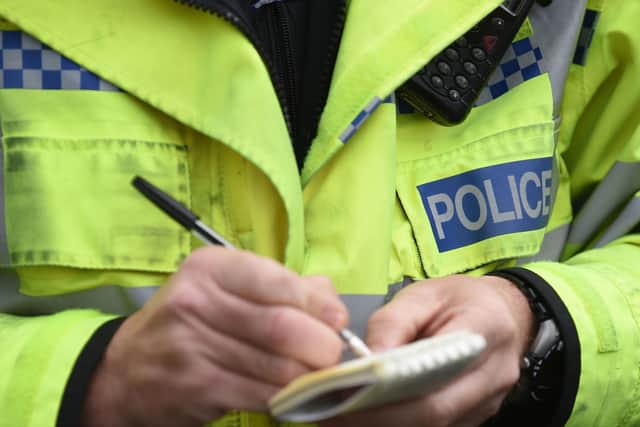Black and Asian people in Bedfordshire nearly twice as likely to get Covid lockdown fines than white people
and live on Freeview channel 276
People from black, Asian and minority ethnic backgrounds in Bedfordshire were nearly twice as likely to be fined for breaching Covid-19 lockdown rules than white people, new figures suggest.
The National Police Chiefs' Council (NPCC) says it is concerned by "disproportionality" in the issuing of fixed penalty notices by forces in England and Wales, but added the picture is complex with wide variation across the two countries.
Advertisement
Hide AdAdvertisement
Hide AdFigures published by the NPCC show Bedfordshire Police handed out 295 fines between March 27 and May 25.


Of those, 192 were to white people and 98 to those of black, Asian or minority ethnic backgrounds.
Analysis carried out by Government statisticians for the NPCC suggests that people from BAME backgrounds were fined at a rate of 6.6 in every 10,000 people, compared to 3.7 in every 10,000 white people.
That means fines for BAME people were 1.8 times higher than for white people – above the national average of 1.6.
Advertisement
Hide AdAdvertisement
Hide AdRates were calculated using police force area population estimates from mid-2016 – the latest year with an ethnicity breakdown. The figures include residents as well as those who travelled to the area.
The data also suggests that across England and Wales, young men aged between 18 and 34, from BAME backgrounds, were over-represented by around twice the rate of young white men in the same age groups.
NPCC chairman Martin Hewitt said: “While it is a complex picture, it is a concern to see disparity between white and black, Asian or ethnic minority people.
“Each force will be looking at this carefully to assess and mitigate any risks of bias – conscious or unconscious – and to minimise disproportionate impact wherever possible."
Advertisement
Hide AdAdvertisement
Hide AdHe added that the NPCC is working towards a plan of action to address issues of inclusion and race equality, such as lower trust in police from black communities and concerns around the use of stop and search.
Bedfordshire Police chief constable Garry Forsyth said: “During this pandemic we have worked hard to adopt a policing stance which focuses on engaging, explaining and encouraging people to follow the government guidance in what has often been a challenging and confusing environment for everyone. Every officer is briefed on this personally.
“Unfortunately, despite the best efforts of our officers, we still had to resort to issuing around 300 fines since March – although that is a fraction of the 7,498 Covid-related incidents recorded during this time.
"It is worth noting that many of these were in cases where people had failed to follow directions to leave, and 47 per cent were due to gatherings of more than two people. When multiple people in a group were fined during the same incident this also has the potential to skew the overall data – for example 12 incidents in Luton accounted for 49 FPNs, while 57 fines were issued in just 14 incidents across Bedford and Central Bedfordshire.
Advertisement
Hide AdAdvertisement
Hide Ad“While the majority of tickets we issued were to white men, the data shows a disparity of those from other backgrounds when compared to population sizes in the county.
"This was mirrored across the country and, while there are a number of potential reasons which could explain this, we felt it was important to carry out our own analysis and also enlisted the help of an independent scrutiny panel who reviewed bodyworn video and statements to identify any learning for our officers and to mitigate any risks of bias – conscious or unconscious – or disproportionate impact.
“Fairness and equality are incredibly important to policing and to me personally as national lead for Race and Religion. We are working with forces across the country and the National Police Chiefs’ Council to develop a plan of action to address racial disparities that still exist in policing. The findings of this analysis will also help to inform that work.”